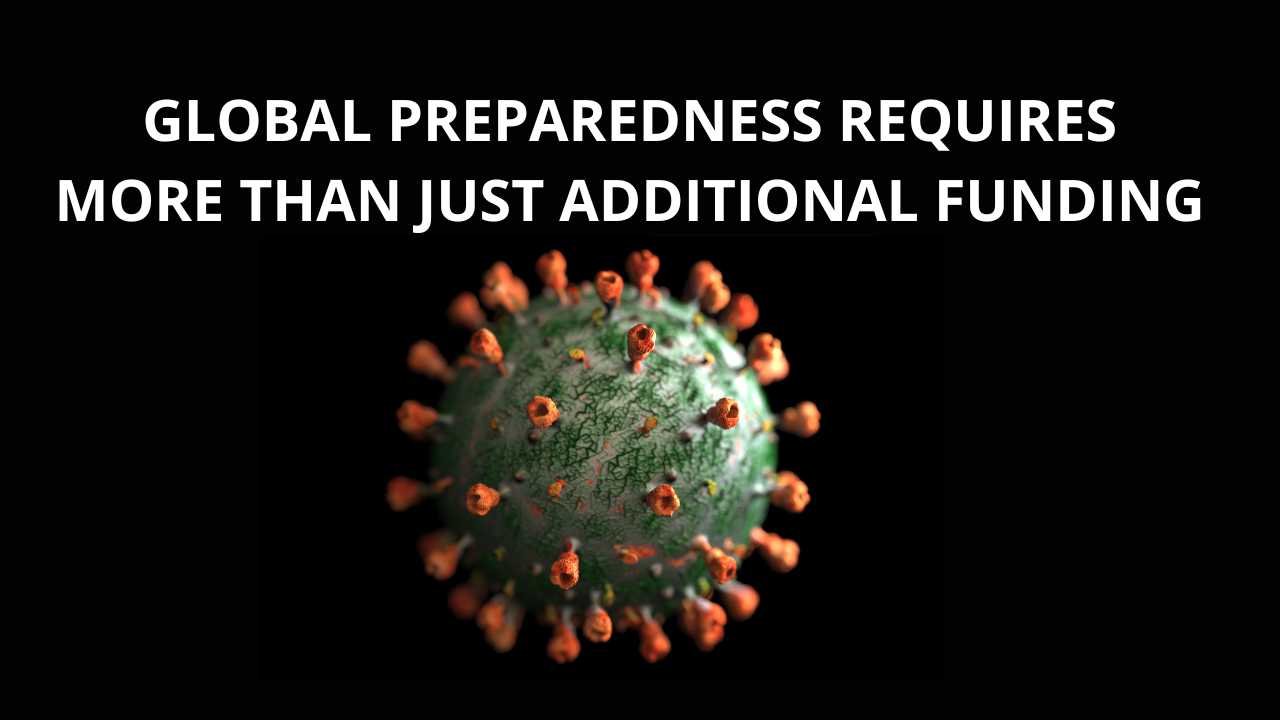
Global Health Security Agenda Needs Stronger Core to Increase Effectiveness
December 12, 2022
By Nellie Bristol
COVID GAP
The Global Health Security Agenda launched in early 2014 as a bold attempt to jump start health emergency capacity building in low- and middle-income countries. Backed by the US government, the coalition of now nearly 70 countries with private sector and nongovernmental supporting organizations, urges increased attention and resources to prevent, detect, and respond to infectious diseases. GHSA works primarily through Action Packages focused on specific issues such as biosafety and biosecurity, surveillance, or legal issues associated with preparedness. The GHSA provides a unique multisectoral forum for countries at all income levels to share lessons and experiences as they work toward compliance with the International Health Regulations (IHR). Among its innovations, the GHSA developed the precursor to what became the Joint External Evaluation (JEE), a voluntary external review of country IHR capacities. Now completed by more than 100 countries, the JEE is a key component to the World Health Organization’s IHR Monitoring and Evaluation Framework and US global health security efforts.
But while the GHSA continues to be a primary policy instrument for the US government, a review released this fall by the Global Health Security Agenda Consortium, NTI:bio, and the Pandemic Action Network asserts the organization was nearly invisible in the COVID-19 response, citing a series of structural issues that hindered its effectiveness. The GHSA could become further eclipsed in a more crowded post-COVID preparedness policy environment with World Health Organization member states negotiating a new international pandemic instrument as well as developing amendments to the IHR, and the launch of the Pandemic Fund housed at the World Bank. With GHSA members having signaled support at a late November ministerial meeting for extending the GHSA for a third five year phase beginning in January 2024, members this year will be considering how the organization fits into the new landscape and how to improve its effectiveness.
The GHSA review offers suggestions. It cites as the organization’s strengths its position as a unique multi-sectoral platform for bringing together engaged stakeholders from across geographies to collaborate and share best practices. Its expansive network of countries, civil society groups, and private sector entities has worked as an incubator for new approaches and ideas and an important source of technical support.
But its low visibility during the COVID-19 pandemic points up GHSA’s shortcomings, the review says. “The COVID-19 pandemic, and the limited role of the GHSA in the global response or in political agenda-setting on what actions or reforms are needed, highlight underlying challenges in the GHSA’s structure, operations, resourcing, and visibility that translate to inconsistent reach and impact and lagging momentum at the global level.”
The review cited structural issues as a major flaw. There is no permanent secretariat and the chair of the governing steering group rotates among partner governments on a voluntary one-year basis. As a result, there is no consistency in operations, engagement, or priorities and no entity to support the chair, maintain operations, or sustain high level political attention and leadership. “The result has been an often disjointed and haphazard effort, with ebbs and flows in the GHSA’s effectiveness,” the review says. The Action Packages, which are the cornerstone of GHSA’s work, suffer a similar leadership deficit, leaving them poorly defined and unable to contribute to an integrated strategy. While the Action Packages have been successful in developing a community of experts and decision makers, “end goals usually remain ill-defined or unachievable given resource constraints,” the review says. Other weakness cited include varying levels of member engagement, limited ability to marshal capacity building resources, and poor accountability for its own performance.
As it determines its course for the next five-year phase, the review recommends the GHSA establish and sustainably fund a permanent secretariat and Action Package coordinators; elevate political leadership for global health security; nurture its role as an incubator for health security innovation, and; bolster its capacity to drive and track progress through a clear accountability framework.
With these recommendations in mind, GHSA members will need to determine how to marshal their considerable network and expertise as efforts continue around the world to improve global health security. The organization has significant untapped potential as a policy and technical leader at a time when all hands are needed to move as quickly as possible to prepare the world for the next pandemic. For example, GHSA and its private sector supporters can help foster pathways for private sector innovation in emergency response. As outlined in a white paper by the Global Health Security Agenda Private Sector Roundtable, companies are eager to contribute their management skills, technologies, and expertise to key preparedness functions including information systems, supply chains, and health communications. Toward that end, it calls for “fresh momentum” behind the public-private partnership model and could provide the expertise to move it forward. On the technical front, with stronger Action Package leadership, GHSA could play a major role as a repository of documents and expertise that can provide step wise support for meeting IHR capacity benchmarks.
But first, the GHSA needs to attend to its own capacity building. Its loose, undefined structure has left it without the core it needs to use its voice effectively in the policy sphere and lacking the reach to make its expansive technical tools as useful as they could be. As the GHSA develops its framework and goals for the 2024-2028 period, Korea has established a Global Health Security Coordination Office, a move supported by the Biden Administration, but a longer term administrative team will be required for the organization to thrive. The world needs the energy, connections, and expertise of the GHSA. Its organizational structure should be enhanced and supported to ensure it can operate at its fullest potential.
